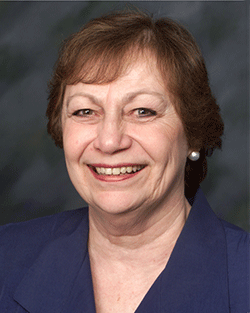Co-Founder and Founding Executive Director Pioneer Network
 I was so brand new to long term care that I had never even been in a nursing home before. So I viewed the field with fresh eyes. And this is what I saw my first day in a nursing home. (I went there because an administrator called regarding a behavior problem with a male resident who was urinating in the plants.) While in the nursing home that day, I saw residents tied in restraints, others lying on their backs in geri-chairs like turtles on a rock with arms and legs flailing. I saw stressed CNAs trying to feed five residents at a time from a horseshoe feeding tray; I saw residents in corridors with arms outstretched to me, crying “help me, help me!”As I visited residents in their rooms, I witnessed their isolation and disconnectedness. I saw loneliness and boredom. And I felt how inhospitable a place it was, no one to greet me, no coffee served, no chair in a resident’s room for visitors to sit in. In fact, there were no visitors.
I was so brand new to long term care that I had never even been in a nursing home before. So I viewed the field with fresh eyes. And this is what I saw my first day in a nursing home. (I went there because an administrator called regarding a behavior problem with a male resident who was urinating in the plants.) While in the nursing home that day, I saw residents tied in restraints, others lying on their backs in geri-chairs like turtles on a rock with arms and legs flailing. I saw stressed CNAs trying to feed five residents at a time from a horseshoe feeding tray; I saw residents in corridors with arms outstretched to me, crying “help me, help me!”As I visited residents in their rooms, I witnessed their isolation and disconnectedness. I saw loneliness and boredom. And I felt how inhospitable a place it was, no one to greet me, no coffee served, no chair in a resident’s room for visitors to sit in. In fact, there were no visitors.
My client Doug seemed so normal as we spoke. Finally I asked him, “so what’s with the urinating in the plants, Doug?” He replied, “it got you here, didn’t it? Rose Marie, help me get out of here. I want to go home!”
That was my first major Aha moment! Behavior is not a problem. Behavior is a symptom. Doug’s behavior was communicating he did not want to be there.
Medical/institutional model environments are facilities; they are not home! Practices don’t express dignity and respect for individuality, nor meet basic human needs such as the need for relationships and purpose. These environments destroy the human spirit for residents and for staff.
After that first visit to a nursing home, my supervisor agreed to let it be part of my job to see if there is someone or someplace in the country with a better vision for caring for our old, sick and frail.
Soon after, I was fortunate to meet Carter Williams, a national leader in restraint-free care. She connected me to some pioneers who had the vision for a culture of aging that is life-affirming, satisfying, meaningful and humane. These pioneers — Joanne Rader (Oregon), Barry and Debby Barkan (California), Bill and Jude Thomas (New York), Charlene Boyd (Washington State) had each developed an approach to express their vision in practice. In 1997, a small grant from a Rochester foundation enabled us to bring these visionary pioneers together for a small meeting of 33 people in Rochester, NY. During our time together we recognized that all their approaches, while called different names, expressed common values and principles.
After three days together, we vowed to continue meeting all across the country to find kindred spirits and start a national movement. That was twenty years ago. Pioneer Network is a network of change agents with the mission to advocate and facilitate deep system change and transformation in the culture of aging.
Today, individuals, providers, regulators, educators, advocates, researchers, journalists, architects, consumers and most of the major national aging organizations are engaged in culture change. Each taking the work into new directions. The movement has grown exponentially both by evolutionary and revolutionary means as we endeavor to break the vicious cycle of dysfunction in a system that has us “marching” to the rhythm of regulation and regimentation, when what we really want, in our hearts, is to “dance.” We want to follow the natural rhythm of our relationships and daily routines. We want to dance to the rhythm of “rampant normalcy.”
We can always be excused for what we don’t know, or for what we don’t know that we don’t know. But when we know the difference; yet continue with old practices, we become an accomplice in violating that person’s rights. Are you an accomplice? Or a liberator? It is a moral decision. The choice is yours!
One Pioneer value is that “everyone can and does make a difference.” Everyone matters. It’s about answering the call to action!
Come to Pioneer Network conference with a sense of hope, a sense of urgency and the desire to make a difference. And the courage to answer the call to take action and be a leader in your workplace and in your state.
Be the Future: Person-Centered Care is Happening! Be part of It.
Rose Marie moved to Georgia last year and is part of the Culture Change Network of Georgia. You may contact her at RMFagan6923@gmail.com


